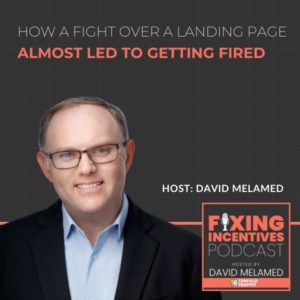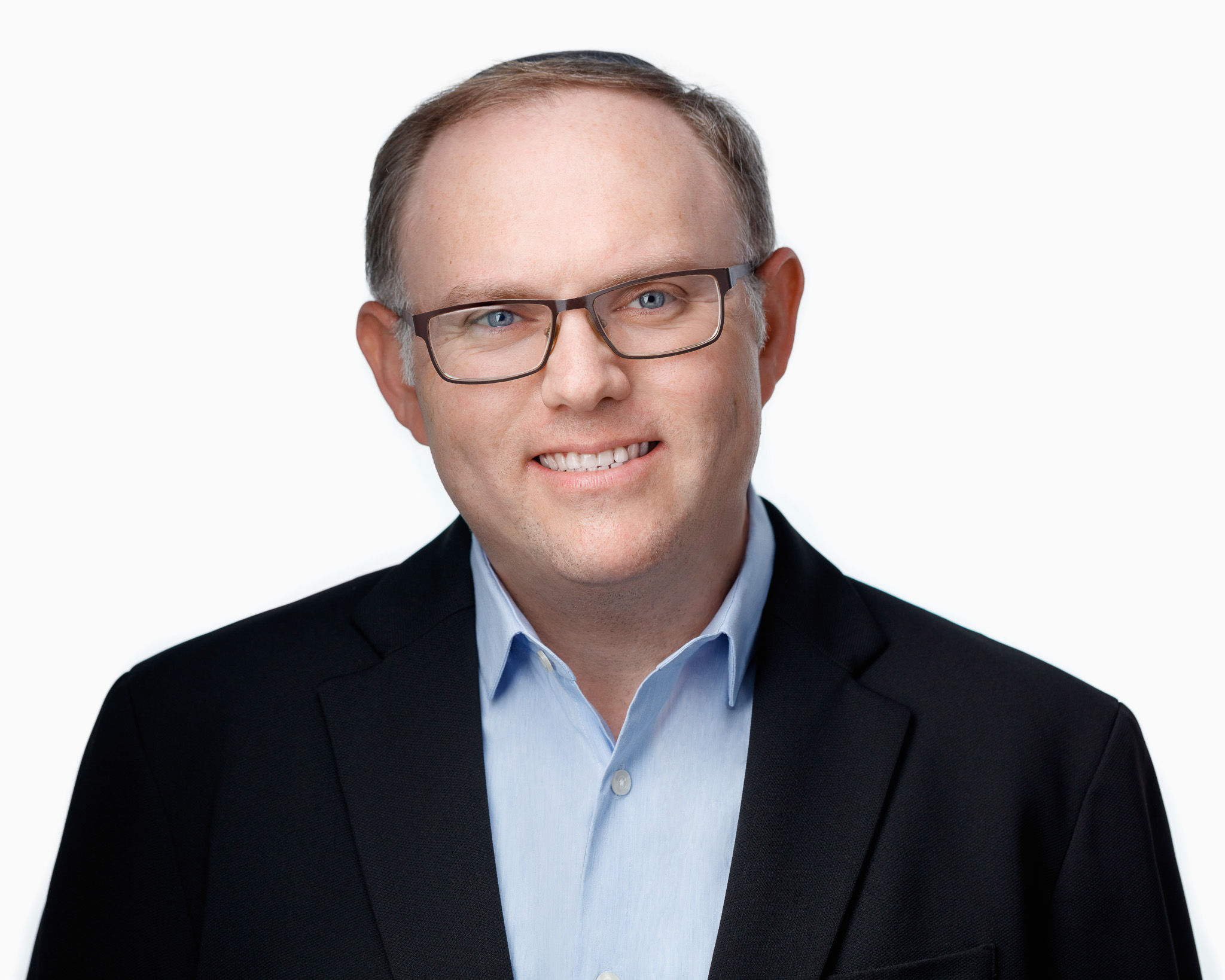David Melamed is the Founder and Chief Impact Officer of Tenfold Traffic, a search and marketing agency with over $50 million of paid search experience. David has had a passion for marketing since he was a child, and over the past 10 years, he has built a successful career in SEO, PPC, and digital advertising.
Before founding Tenfold Traffic, David oversaw marketing for companies such as Cayre Equities and Gamestaq.com. He is currently the host of the Fixing Incentives Podcast, where he speaks with business leaders about the behavior that powered their growth.
Here’s a glimpse of what you’ll learn:
- How David Melamed’s landing page test almost got him fired
- Why the comparison landing page test was so crucial for David
- The importance of how you convey your message
- Creating a website that matches your customer’s expectations
- Knowing how to meet your customer’s needs in a natural way
- Why multi-location healthcare brands make such a great market
In this episode…
It’s often thought that presentation is king in business. All you need is a fancy website and some good branding to take your business to the next level. More importantly, that complete, polished look is the only way to sell your brand. This has led to an endless competition to be the sleekest, most modern brand you can be. But what if a brand’s presentation isn’t as important as it’s been made out to be?
David Melamed has done the research and found some interesting results. His initial test gave him a new perspective on how a landing page should look — and it nearly got him fired. Now he has a story from the experience and his unique approach towards presentation. Want to know how it all played out?
Dr. Jeremy Weisz of Rise25 returns to interview David Melamed to hear his story on how a landing page test almost got him fired and changed his view on the subject. They go over the story itself, the test between two very different landing pages, and why the results are important. They also go through how to meet your customer’s expectations and why David thrives in multi-location healthcare marketing. Hear it all and more on this episode of the Fixing Incentives Podcast!
Resources mentioned in this episode:
- David Melamed
- David Melamed on LinkedIn
- David’s email address: david at tenfoldtraffic dot com
- Rise25
- Dr. Jeremy Weisz on LinkedIn
- Inspired Insider episode with Elon Gold
Sponsor for this episode…
This episode is brought to you by Tenfold Traffic.
The only projects I take on currently are performance-based relationships.
What that means is…
All marketing would go through me on my own dime, and we negotiate a revenue share.
I don’t want someone to give me money if I don’t generate a return for them.
But, if I am making someone a ton of money, then I want to share in the revenue.
In other words, I want to participate in the full value I am creating.
Right now, I am only looking for one or two companies a year to pour my heart and soul into and to have as partners.
An ideal partner is someone who has a converting funnel and can handle scale and let me work my magic.
If you are a company that knows your lifetime value of a client and wants to spend as much as you can to acquire a customer and dominate the market, then I am your person.
If you are looking for a partner, I am your person, and if you are looking for a vendor, then there are several people I have vetted and can refer you to.
Visit www.davidmelamed.com to learn more or email me at david at tenfoldtraffic dot com.
Episode Transcript
Intro 0:03
Welcome to the Fixing Incentives Podcast where we talk about the incentives that drive success. Now let’s get started with the show.
David Melamed 0:14
David Melamed here, I’m the host of Fixing Incentives Podcast where I talk with top business leaders about their journey and the behavior that power their growth. I’m really excited to have Dr. Jeremy Weisz here with me of Rise25, a guy who’s done 1000s of interviews with successful entrepreneurs, CEOs, and even comedians like Elon Gold, I’m a really big fan. And we have flipped the script and he’ll be interviewing me.
Dr. Jeremy Weisz 0:38
I love Elon Gold to go check it out. But um, I’m excited because we were chatting about this, I don’t even know the full story. So I’m gonna dig into it. But he basically David almost got fired over a landing page, almost as a keyword. So I’m glad you didn’t get fired. But before we get into the details on that, I want to just say this episode is brought to you by Tenfold Traffic. And for you, David, I only know I know you do projects with companies that are willing to do a performance based relationship. And for those of you out there, what that means is all marketing goes through you on your own dime, and as a revenue share, and you don’t want to take someone’s money if you’re not generating them a return. But you also want to share on the upside, if there is a lot of return. So I know you only choose a few projects to pour your heart and soul into an ideal partner is someone who has a converting funnel and can handle scale. And they let you work your magic. So if you are a company out there, you know of a company that has they know the lifetime value of a client, they want to spend as much as you can to acquire a customer and dominate the market. Message David, you can message him at David at tenfold traffic dot com or go to their website, David Melamed. dot com lamed dot com. So let’s talk about you almost got fired over a landing page. Yeah, what happened?
David Melamed 2:06
So it was a fairly early in my career. I am I recently left the agency I went in house at a company that bought junk cars. And one of the first projects I had was I had to get a couple landing pages designed and you’re there to run some tests to see you know, what message would convert well and things like that. So we designed these two landing pages that were almost polar opposites. So a lot of people when they do their split testing, they maybe they try to change a color or a button or maybe even a headline, but we wanted an entirely different experience to see if like maybe maybe there’s something we’re missing about the market or something to understand so what we did is we we have one landing page which was very professional looking very corporate You know, it talked about buying fleets of trucks and and use cars from like car rental companies I just gave off this enterprise impression of like, Hey, this is a really legitimate professional accompany the other one page looked honestly almost like a scam. It had like a girl holding up a wad of cash in her hand with like a keys in the other hand and a huge junk car and headline like, get up to $10,000 for your junk car. Call now, it just like everything about screen like do not trust these people do not pick up the phone and call them. They there’s no way it’s legitimate. And we ran a test to see which one would convert better. And this was search engine traffic primarily some people searching cash for junk cars, or semi junk car and things like that. And before I get into the results of the test, what got me almost fired is we showed these landing pages to my boss, to the guy who owns the company. And I guess I will detail to add my co worker who I worked very closely with was his son. And both very smart people intelligent about marketing. And we showed both landing pages to my boss, this guy’s dad and bear in mind. He is an attorney as well, while he was an entrepreneur, you know, he kind of had this legal side to him as well. And he just hated the scammy looking landing page. And he’s just like, I don’t think we should use it. Um, and I, in my infinite wisdom, said you know to my co worker Not in front of my boss saying, you know what he goes screw himself because I want to run this test. And that obviously got back to my boss, cuz you don’t really tell someone in front of their yoke really tell someone that their dad could go screw themselves or something like that, I tried to be a little more careful now, I actually, interestingly enough, after that experience, you know, so there are two co founders, the other Boss, I had a complaint about the call center. And I use the words I said The call center is a disaster. And I got lectured for that, that it’s in the corporate world and business a very big mistake to use such strong language, describing something, especially when you don’t really have the context or know what’s going on, it’s very easy to just look at your, your little orbit and what you would like the little slice of the pie that you see and draw conclusions. But the reality is that most people and most companies are hardworking and caring and doing the best they can within the specific constraints and resources that they have in front of them. And, you know, nobody’s really perfect and the word disaster implies you need to rip it apart and rebuild it. And the truth is, more often than not, when I made a recommendation for something even like a script change to the call center, one minor change ended up causing problems just with training people in implementing it. It confused people. So I’ve learned the hard way that you have to work with what you have, and do your best within those constraints. And then you can encourage people to improve but definitely not, you know, coffees, disasters. So but anyway, back to the so he wanted to fire me, because I said he could, you know, go jumping away. And the the co founder went to bat for me and said, well, let’s see the results. And so we ran the test.
Pages: 1 2









 Click Images To Verify
Click Images To Verify
